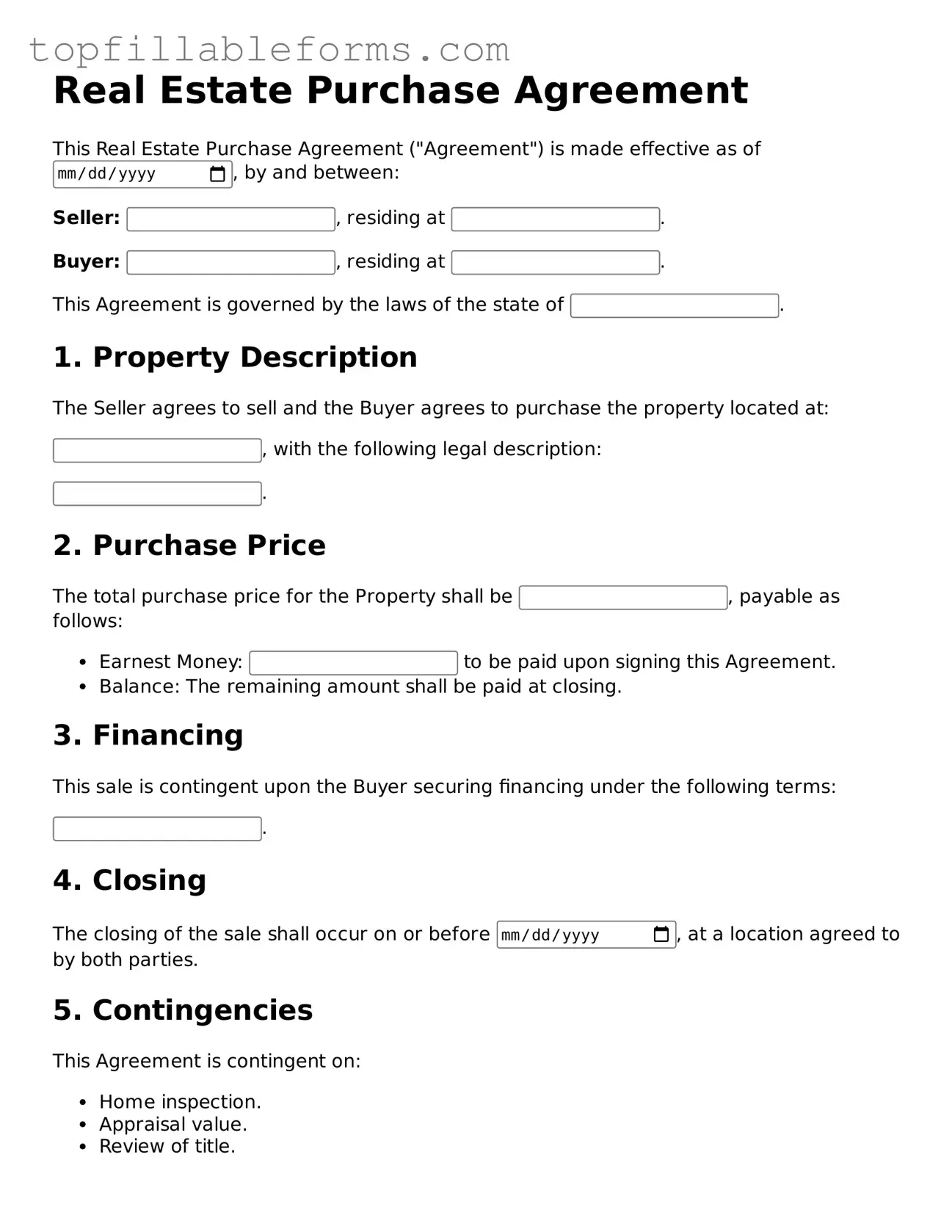Free Real Estate Purchase Agreement Form
A Real Estate Purchase Agreement is a legally binding document that outlines the terms and conditions of a property sale between a buyer and a seller. This agreement serves as a crucial step in the real estate transaction process, ensuring that both parties understand their rights and obligations. By detailing essential information such as the purchase price, financing arrangements, and closing date, the agreement helps facilitate a smooth transfer of property ownership.
Open Real Estate Purchase Agreement Editor Here

Free Real Estate Purchase Agreement Form
Open Real Estate Purchase Agreement Editor Here
Finish the form now and be done
Finish your Real Estate Purchase Agreement online by editing, saving, and downloading fast.
Open Real Estate Purchase Agreement Editor Here
or
▼ PDF File
